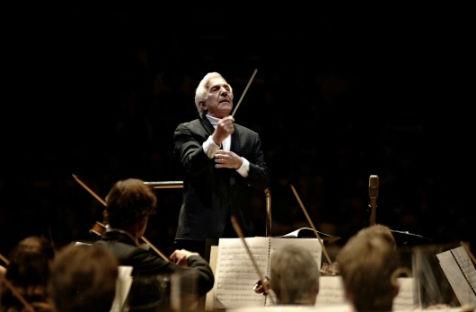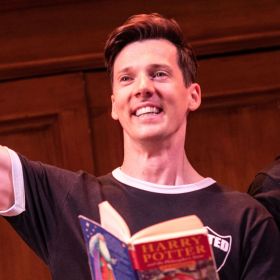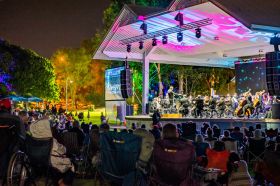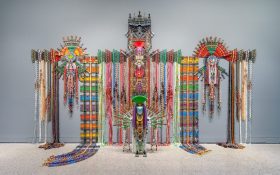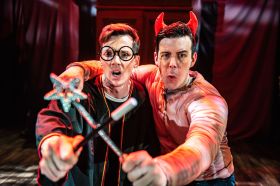It’s fairly easy to know when you’ve heard a truly great performance. To start with, you’re invested and engaged with the piece in question the entire time – obviously. But what does this mean in practice?
I find that with myself it often manifests as a sort of breathlessness. (Well, not a literal breathlessness – I wouldn’t last an entire symphony if it were, and I’d probably cause a commotion in the stalls that would be quite unbecoming of a critic.) The fast parts of the piece are found to be intense when they register, and the slow parts are paced perfectly right. But it’s the transitions between the two that let your conscious mind know of the special things that are happening.
For instance, when moving from a fast section to a slow section mid-movement, there’s this sort of excess inertia that keeps your soul flying through the notes, but the notes having already slowed down, the extra energy turns into an excited buzz that lasts for a few seconds before returning you to the new tempo. It’s like sprinting and jumping off a cliff and having the air take you up instead of falling. Another aspect of it all is that, while you’re listening, it feels like everything is developing at exactly the right pace – the crescendos aren’t laboured, as if an ant were trying to push a boulder up a hill, and the silences (or relatively quiet moments) have just the right amount of time to resonate.
Vladimir Ashkenazy, conducting the Sydney Symphony in a performance of William Walton’s Symphony No. 1 in B flat minor, was just such a performance as I describe above. One knows not what Ashkenazy had been feeding his musicians for breakfast that morning, but they should clearly stick to the diet. What ecstasy it was! The piece itself was one of Ashkenazy’s favourites (as you may have guessed from the title of the concert), and clearly he knows what he needs to do to get the most out of it. By the end I was stunned. A masterful performance of a masterpiece.
But that was after the interval. We began with Tchaikovsky’s Romeo and Juliet – Fantasy Overture. Whenever a work of Shakespeare’s is adapted or co-opted for another purpose, I always find myself wondering what the Bard would have made of it, if he were alive and sitting somewhere in the Concert Hall of the Sydney Opera House that evening. The reflex is to assume that he would have liked it, but then one remembers that Tchaikovsky is a long way away from the music he would be familiar with. (This scenario of mine involves time travel, in case you didn’t realise.) Still, I think he would have liked this performance, as Ashkenazy managed to oscillate with much fluidity and drama, and, when the climaxes are reached – especially that famous love theme – nothing in the world can resist its pull.
Richard Strauss’ Concerto for oboe and small orchestra was a curious choice for the other piece on the program. It’s a fine piece in itself, but the juxtaposition between it and the Tchaikovksy beforehand meant that it sounded rather small in comparison. (That, and the reduced orchestra was a tad swamped, one thinks, by the huge Concert Hall.) Soloist Hansjorg Schellenberger was captivating in his cadenzas, but didn’t make quite as much of a dent as one would have liked when he was playing with the rest of the orchestra.
It was an accomplished performance, but not a convincing one, and considering that it was meant to be a favourite of Ashkenazy’s, one imagines that many an audience member might have been left scratching their heads as to why. But for me it was all about the Walton, which has to be one of the best performances the Sydney Symphony have given in recent memory.
Rating: 4
Ashkenazy’s Favourites
Sydney Symphony
Vladimir Ashkenazy (conductor), Hansjorg Schellenberger (oboe)
Concert Hall, Sydney Opera House, Friday 17th May 8pm
Peter Ilyich Tchaikovsky – Romeo and Juliet – Fantasy Overture
Richard Strauss – Concerto for oboe and small orchestra
William Walton – Symphony No.1 in B flat minor
